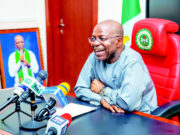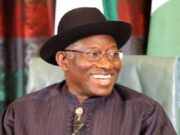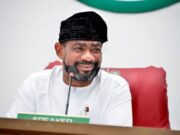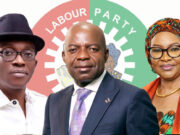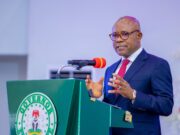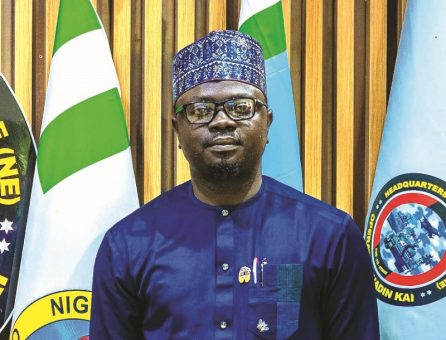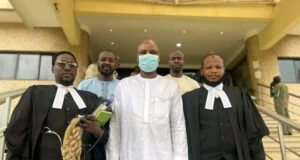Minister of Youth Development, Ayodele Olawande, has announced that grassroots sessions of the National Youth Conference will officially commence in the first week of June.
This follows the March 10 inauguration of the national planning committee by President Bola Ahmed Tinubu.
Providing updates on the preparations, the minister explained that consultations with Nigerian youths in the diaspora and through online platforms will begin by the end of May.
“By next month, the Diaspora and online engagements will start. When I return to Abuja, we’ll look at the next report and we’ll get to build a big website for that purpose that can engage as many as possible,” Olawande revealed.
“I can tell you that before May 29, the Diaspora and social platform engagements will start, and that one will go on so that they can collate all those ideas together.”
He further confirmed that in-person sessions at the grassroots level will immediately follow, covering all 36 states and the Federal Capital Territory (FCT).
The goal is to decentralize the process and ensure inclusivity.
“Work is ongoing. I think they are currently at sub-committee levels because since it’s not going to be concentrated in Abuja, we’ll be going to the grassroots, so there’ll be local organising committees in all the 36 states and the FCT, whereby the process will be managed by both government and the private sector,” he said.
Each state’s committee will include youth commissioners and representatives from the local private sector.
According to Olawande, the conference is not politically driven, although a small percentage of participants will come from political party youth wings.
“It is not a political thing, but there’s no way we won’t still consider politics because like in the committee we have representatives of all national youth leaders of all political parties.
“We will also ensure that the representation of the political parties’ youth forums, all of them put together, will be just 1%. We’ll allow the process to be driven by the NGOs and all such organisations that will participate,” he explained.
Addressing questions around financing, the minister clarified that the event is not a platform for distributing funds and will rely on modest donations and support from development partners rather than large government funding.
“We’re being mindful of our current financial state. We’re not doing any fundraising. It is a confab, but it is not a confab where we’ll be sharing money, no. If you really want to join us to discuss, please come, but don’t expect that we will be sharing money there. Nobody will give you millions in the name of confab,” he stated.
He added that interest from diplomatic missions such as the United States and Qatar embassies was visible during the committee’s inauguration, suggesting support from international partners.
Olawande stressed that the structure of the conference reflects the diverse realities of Nigerian youth, particularly across rural and underserved areas.
Having visited 28 of Nigeria’s 36 states, he observed that youth concerns vary widely by region.
“In my travels, I have discovered that the demands and desires are varying. What youths from one state or district or constituency or local government want are different from others.
“For instance, demands and desires of youths from two different senatorial districts within the same state are different; they have their peculiarities,” he explained.
He emphasized that centralizing the conference in Abuja would pose significant challenges, especially in selecting delegates fairly, given the fragmented nature of youth groups nationwide.
“To select delegates for an elders’ confab is easier because every community or nationality knows its elder statesman.”
“But for youths, just a political party can have over 101,000 youth groups. Youth groups are uncountable. So is it possible to accommodate all youth organisations? No,” he said.
As a solution, the conference will adopt a senatorial district-level format to strike a balance between representation and logistical feasibility.
“So why not take it to the people that really need this conversation? Why not say okay, if because we can’t do 360 federal constituencies because of financial constraints, why not do 109 senatorial districts?” he asked.
The National Youth Conference aims to create a unified platform for young Nigerians to express their concerns, shape national discourse, and contribute meaningfully to the country’s development agenda.


